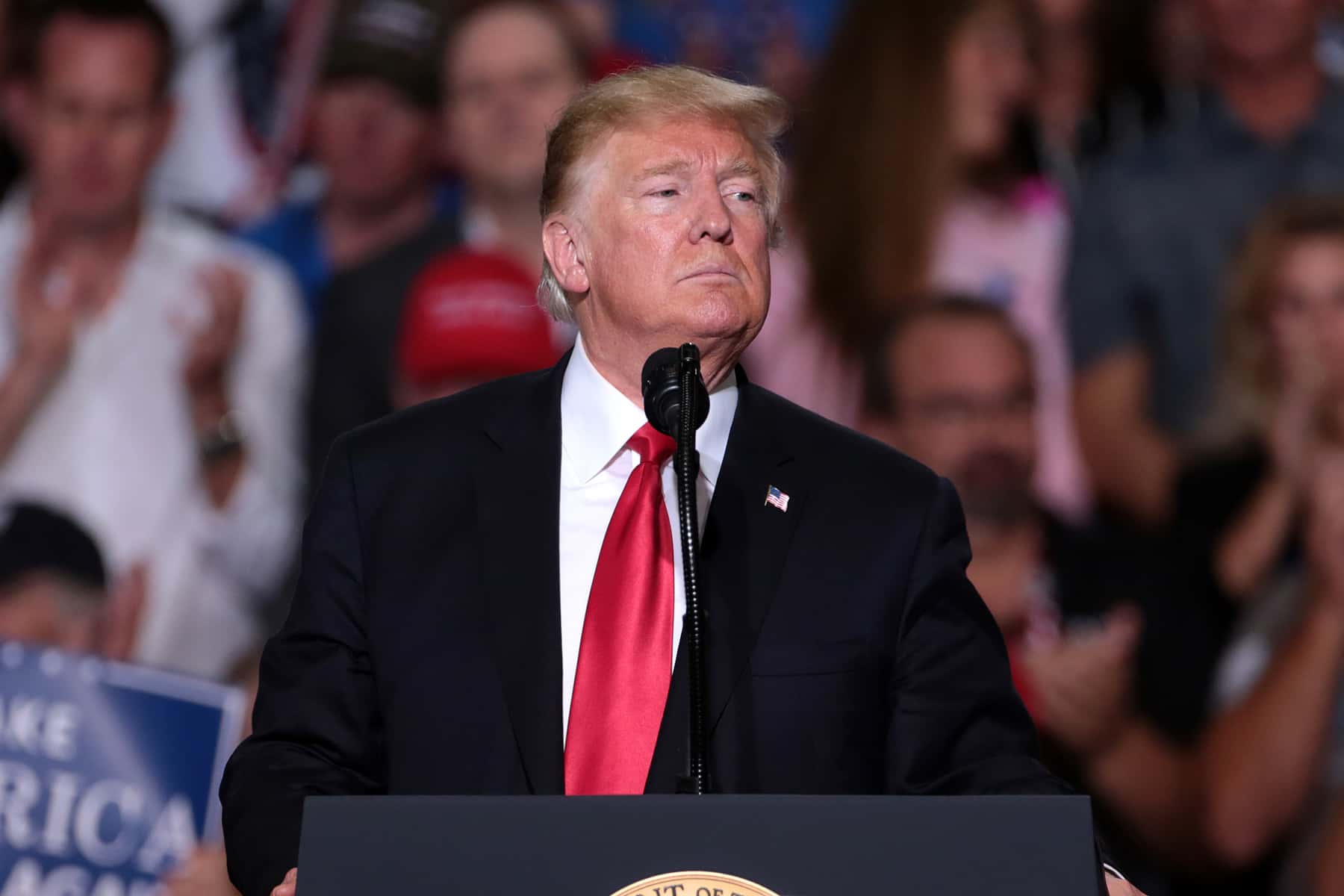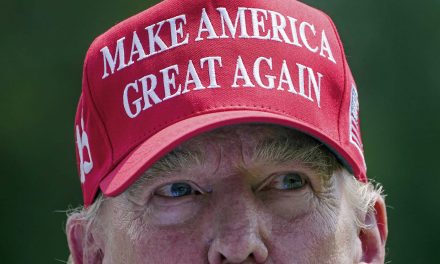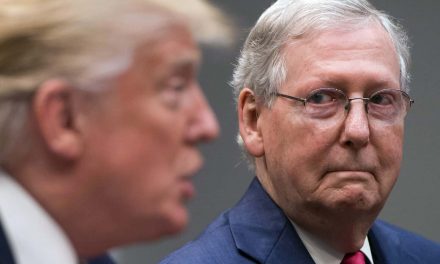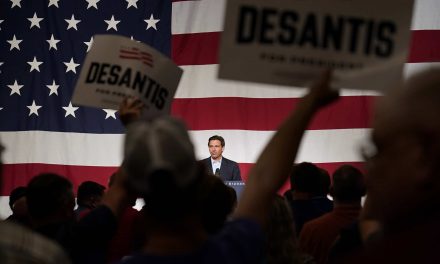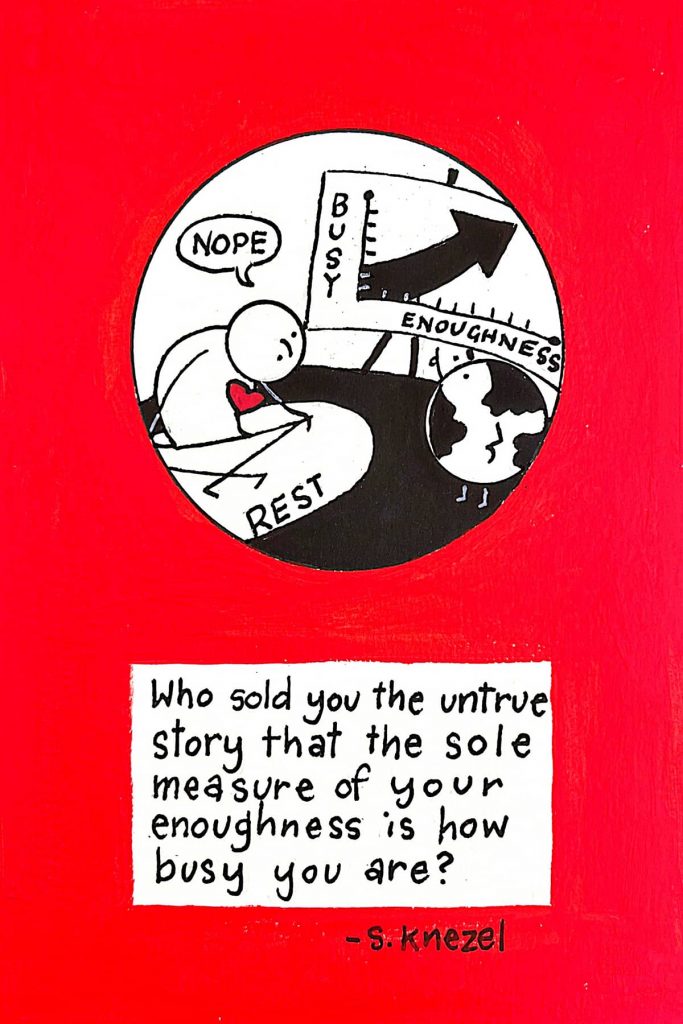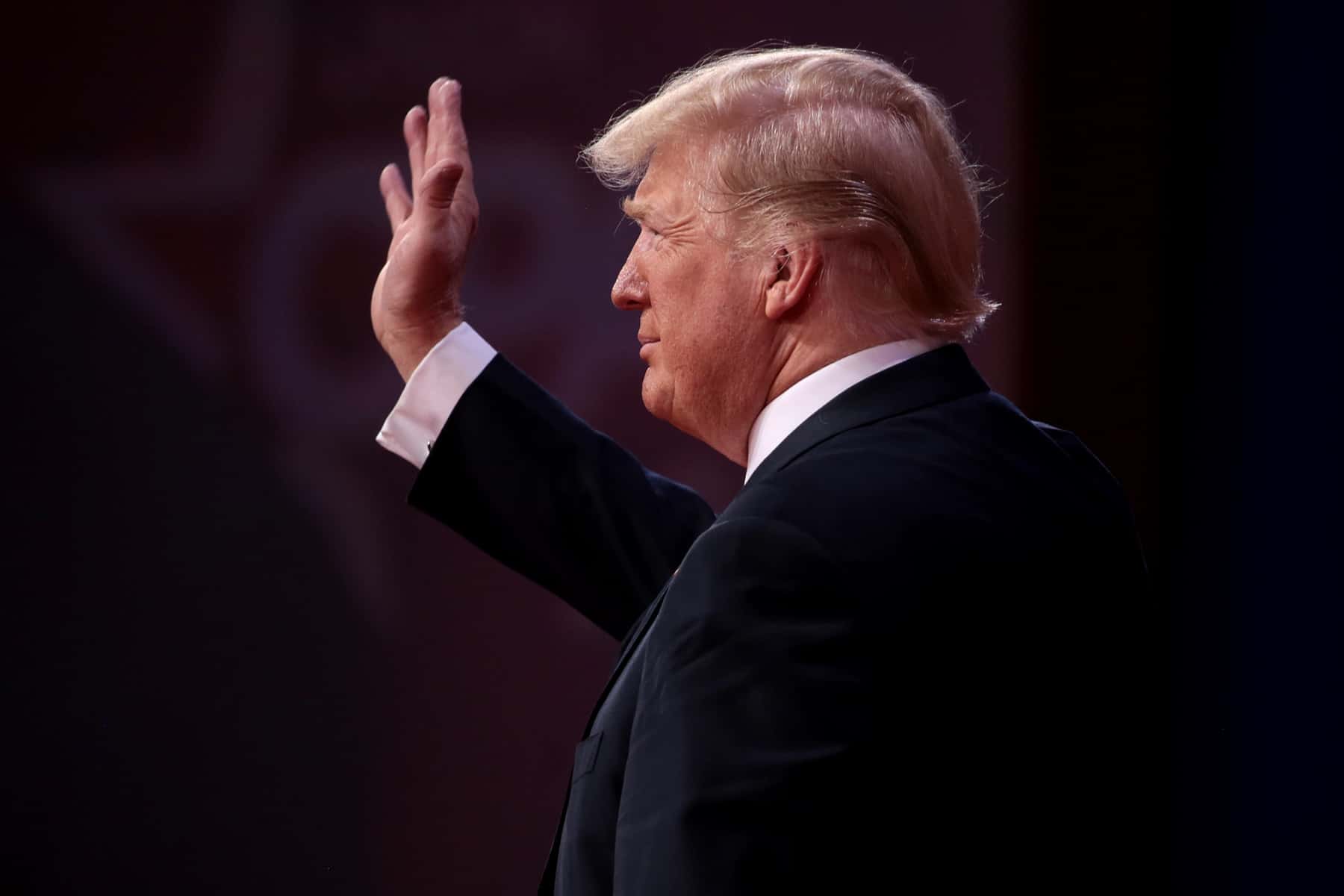
Photo by Gage Skidmore and licensed under CC BY-SA 4.0
For a century the GOP has been bankrolled by big business and Wall Street. Trump wants to keep the money rolling in. His signature tax cut has helped U.S. corporations score record profits and the stock market reach all-time highs. To spur even more corporate generosity for the 2020 election, Trump is suggesting more giveaways.
Trump wants to expand his working-class base. In rallies and countless tweets he claims to be restoring the American working class by holding back immigration and trade. Incumbent Republicans and GOP candidates are mimicking Trump’s economic nationalism.
Keeping the GOP the Party of Big Money while making it over into the “Party of the Working Class” is a tricky maneuver, especially at a time when capital and labor are engaged in the most intense economic contest in more than a century because so much wealth and power are going to the top.
Armed with deductions and loopholes, America’s largest companies paid an average federal tax rate of only 11.3 percent on their profits last year, roughly half the official rate under the new tax law – the lowest effective corporate tax rate in more than eighty years.
Yet almost nothing has trickled down to ordinary workers. Corporations have used most of their tax savings to buy back their shares, giving the stock market a sugar high. The typical American household remains poorer today than it was before the financial crisis began in 2007.
Trump’s giant tax cut has also caused the federal budget deficit to balloon. Even as pretax corporate profits have reached record highs, corporate tax revenues have dropped about a third under projected levels. This requires more federal dollars for interest on the debt, leaving fewer for public services workers need.
The Trump administration has already announced a $4.5 billion cut in food stamp benefits that would affect an estimated 10,000 families, many at the lower end of the working class. The administration is also proposing to reduce Social Security disability benefits, a potential blow to hundreds of thousands of workers.
The tax cut has also shifted more of the total tax burden to workers. Payroll taxes made up 7.8 percent of national income last year while corporate taxes made up just 0.9 percent, the biggest gap in nearly two decades. All told, taxes on workers were 35 percent of federal tax revenue in 2018; taxes on corporations, only 9 percent.
Trump probably figures he can cover up this massive redistribution from the working class to the corporate elite by pushing the same economic nationalism, tinged with xenophobia and racism, he used in 2016. As Steve Bannon has noted, the formula seems to have worked for Britain’s Conservative Party.
But it will be difficult this time around because Trump’s economic nationalism has hurt American workers, particularly in states that were critical to Trump’s 2016 win. Manufacturing has suffered as tariffs raised prices for imported parts and materials. Hiring has slowed sharply in Pennsylvania, Michigan, and other states Trump won, and in states like Minnesota that he narrowly lost.
The trade wars have also harmed rural America, which also went for Trump, by reducing demand for American farm produce. Last year China bought around $8.6 billion of farm goods, down from $20 billion in 2016. (A new tentative trade deal calls for substantially more Chinese purchases.)
Meanwhile, health care costs continue to soar, college is even less affordable, and average life expectancy is dropping due to a rise in deaths from suicide and opioid drugs like fentanyl. Polls show most Americans remain dissatisfied with the country’s direction.
The consequences of Trump’s and the Republicans’ excessive corporate giveaways and their failure to improve the lives of ordinary working Americans are becoming clearer by the day. The only tricks left to Trump and the Republicans are stoking social and racial resentments and claiming to be foes of the establishment. But bigotry alone will not win elections, and the detritus of the tax cut makes it difficult for Trump and the GOP to portray themselves as anti-establishment.
This has created a giant political void, and an opportunity. Democrats have an historic chance to do what they should have done years ago: Create a multi-racial coalition of the working class, middle class, and poor, dedicated to reclaiming the economy for the vast majority and making democracy work for all.
Originally published on RobertReich.org as How Trump Has Betrayed the Working Class
Help deliver the independent journalism that the world needs, make a contribution of support to The Guardian.
- Milwaukee’s Latino community welcomes LULAC 2019 National Convention with gala celebration
- Historic ribbon cutting at LULAC convention ushers in new chapter for local Hispanic population
- How a vibrant local Latino history landed the LULAC national convention in Milwaukee
- Presidential candidates Castro, Warren, Sanders, and O’Rourke visit Milwaukee for LULAC’s Town Hall
- Chief Alfonso Morales joins Wisconsin leaders in support of drivers permits for immigrants
- Puerto Rican leaders share love of America and need for disaster relief during Milwaukee visit
- LULAC members swarm Senator Ron Johnson’s Milwaukee office in protest of “Kids in Cages” at border
- Lights for Liberty coalition holds vigil to shine a light on the darkness of detention camps
- Politics and Puppets: How oligarchs profit from Trump’s division of Americans
- National spotlight will be on Milwaukee’s Latino community during LULAC National Convention
- Milwaukee to celebrate Latino heritage as host of LULAC National Convention on 90th anniversary
- Darryl Morin helps LULAC National Convention say yes to Milwaukee
- Milwaukee residents shutdown highway near Trump fundraiser to protest family separation 📷AWARD
- Milwaukee joins national protest demanding end to Trump’s zero tolerance policy
- Milwaukee faces moral crisis as voices share the heartbreak of Trump’s immigration policy
- Rally at Homeland Security office seeks end to indefinite imprisonment of families
- Wisconsin National Guard to participate in Federal actions to separate families at Mexican border
- Milwaukee families face separation and deportation as Speaker Ryan stalls DACA legislation
- Politicians and supporters of DACA arrested in Racine while fighting for Dream Act
- Trump ends DACA and Milwaukee leaders react with outrage to its impact
- End of DACA proves white society hoards the American dream
- Trump’s deportation directive targets vulnerable Milwaukee families
- Coalition supporting refugees shares its love for this country
- Darryl Morin: Every voice makes a difference

